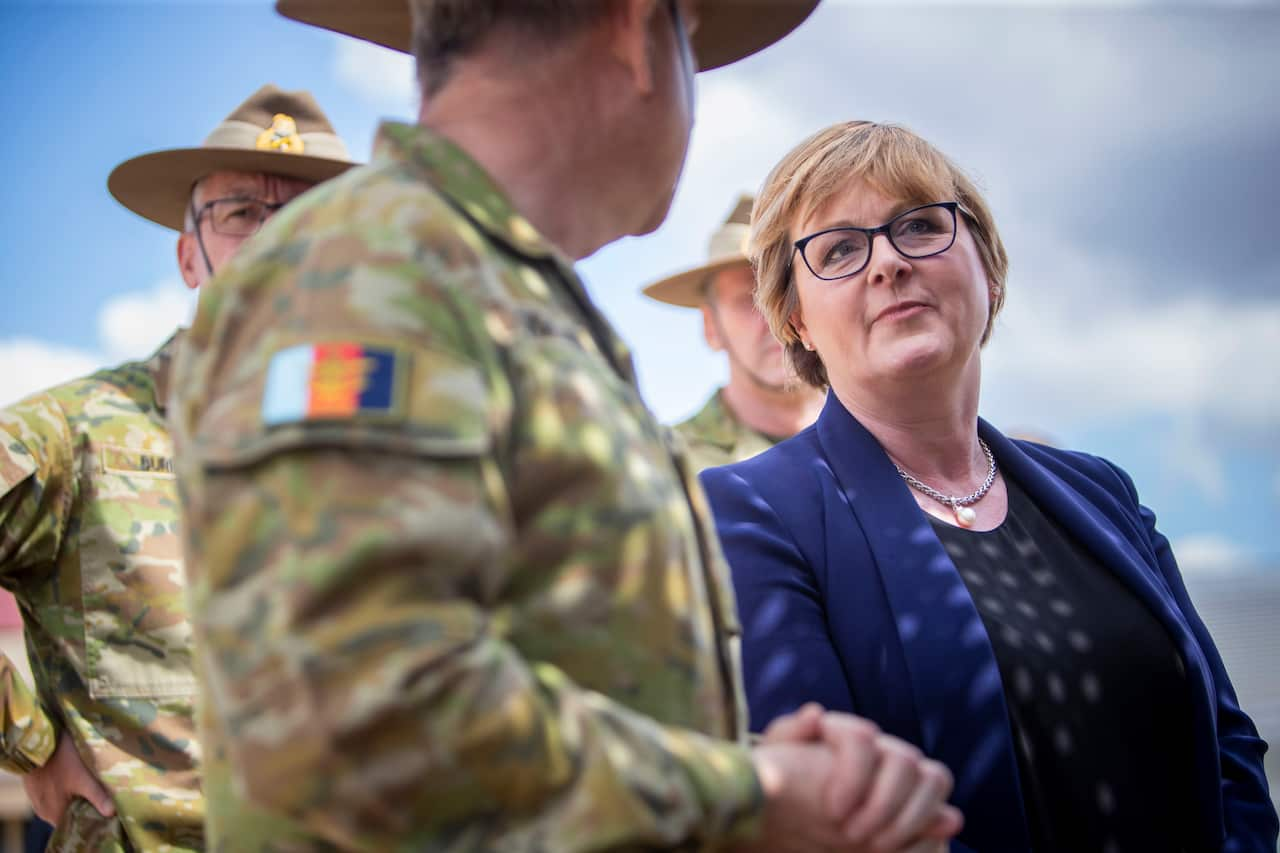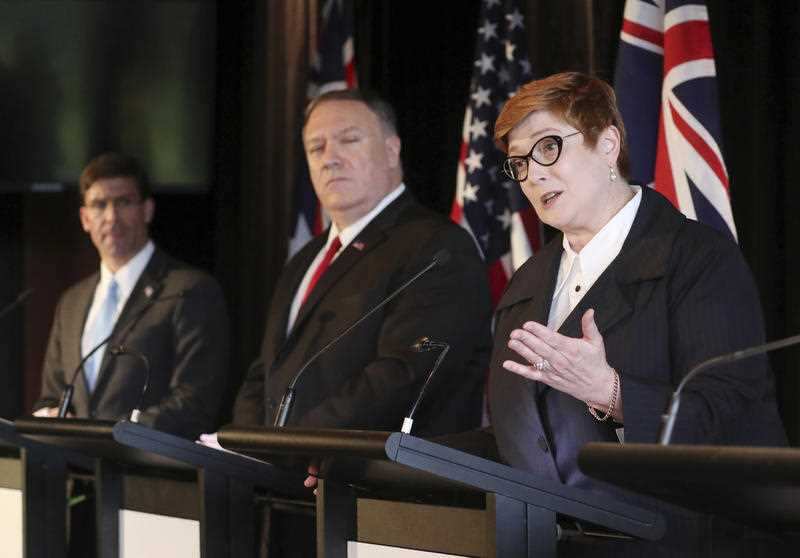Defence Minister Linda Reynolds has urged the US to play a greater role in the Indo-Pacific region to counter China's power and influence, telling a Washington conference “deterrence is a joint responsibility for a shared purpose”.
Senator Reynolds used her address to the Hudson Institute in Washington - a politically conservative but well regarded strategic and economic think tank - on Friday, to call for a “credible hard power deterrent” in the region.
"The United States has been the key to the Indo-Pacific success story for both peace but also for prosperity," Senator Reynolds said.

"And the future of both hinge on sustaining and deepening US engagement."
She said that was more than committing military strength - as crucial as this has been and will continue to be so - but also about fostering economic growth and strengthening democratic institutions.
The senator pointed out Australia’s military links to the US all the way back to WWI, recalling her own Digger grandfather who served alongside American “doughboys” during the Battle of Hamel in France.

“For me, it is also a very personal bond,” she told the lecture.
“We need to listen, really listen, to concerns and different perspectives, and take account of regional sovereign aspirations and interests.
“Australia does not take for granted a regional default inclination towards the advantages of existing rules-based systems – nor should the United States.
“As clear as those advantages are to us, we must constantly prove them to others.”
China has rapidly emerged as a growing player in the Pacific, complete with building artificial island staging bases, amid accusations of economic coercion directed at the Pacific nations.

The comments come amid a war of words fired off between Australia and China: China scolded Australia's Foreign Minister Marise Payne for daring to suggest Beijing should be called out over human rights abuses.
Prime Minister Scott Morrison doubled down on those accusations on Friday, saying the issue of human rights abuses and the mass detention of Uighur Muslims by Beijing had been raised.
It's expected Mr Morrison may still hold talks with Chinese State Council Premier Li Keqiang on the sidelines of a busy two-day East Asian Summit, which starts on Sunday in Thailand.

The Bangkok meeting comes as the APEC Leaders’ summit, where Mr Morrison was due to meet Chinese President Xi Jinping later this month in Chile, was cancelled due to riots.
Amid the friction between Australia and its number one trading partner, Mr Morrison did have a lengthy discussion with Chinese Vice President Wang Qishan when they were both in Indonesia last month, which the prime minister described as "constructive and positive".

And while Australia’s defence minister used the Hudson Institute address to call for a renewed US focus on the Pacific, US President Donald Trump appears to be indifferent after declining to attend the ASEAN summits in Thailand.
Mr Trump also didn’t attend the APEC summit in PNG last year.


